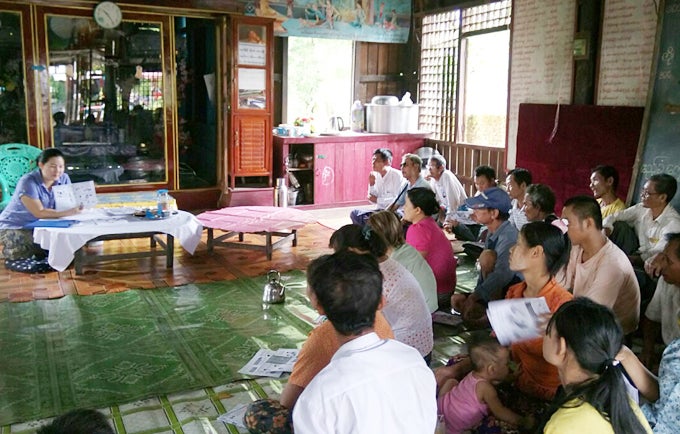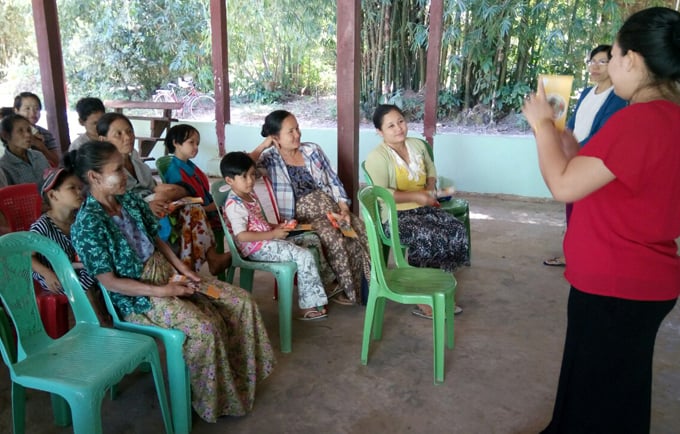In late 2016, UNFPA, in collaboration with partner organizations the Myanmar Medical Association (MMA), Marie Stopes International and Association François-Xavier Bagnoud initiated the project, “Immediate and Rapid Response to Gender-Based Violence through provision of mobile case management and psychosocial support to reach most affected areas” to raise awareness among local communities about gender-based violence (GBV). The project is funded by the Central Emergency Response Fund (CERF) and focuses on the regions of Ayerwady, Magway and Mandalay, all of which were affected by the heavy monsoon rains of 2016. The six-month project aims to reach 12,000 adults in these three regions, particularly women and girls; the most vulnerable populations when natural disasters strike.
UNFPA leads the GBV sub-sector and coordinates emergency responses, as well as building disaster preparedness with its partners to ensure an immediate and rapid response in times of emergencies. Activities include: life-saving case management; psychosocial support; the distribution of UNFPA’s dignity kits; improved access to reproductive health services; and increased security for women and girls.
Dr. Aye Thin Khaing, a member of MMA, is currently raising awareness about GBV among local communities in Ayerwady. In one community she looked at the blank faces staring back at her and sensed something was not quite right. She spoke with her team members and the community elders and realized that people did not understand what she was talking about; underscoring the lack of awareness or knowledge about GBV. “The subject is new to local communities. Traditions encourage survivors of GBV to remain silent about their plight. They give many excuses such as the reputation of their family. I have to explain to them that women and girls who have been subjected to violence do not make for a happy society. Traditions and habits take time to transform, but I am certain we will succeed. We need to break the silence,” she said.
Dr. Aye met with community members during the training, and has assisted several survivors of GBV including: a wife living with HIV who has been repeatedly beaten by her husband for years; a man who attempted to rape a young girl; and a young girl who became pregnant by her father. Dr Aye provides psychosocial support and refers women and girl GBV survivors to local NGOs for other essential services.
A woman from a village an hour and a half boat’s ride from Pathein attended Dr Aye’s GBV awareness session. She said: “At first, we thought it was the usual basic health education session. But Dr Aye explained GBV using drawings. The subject is new to us particularly as we think that violence between a husband and wife is just a family affair. I wish we could bring all men to such sessions so that they could learn something.”



